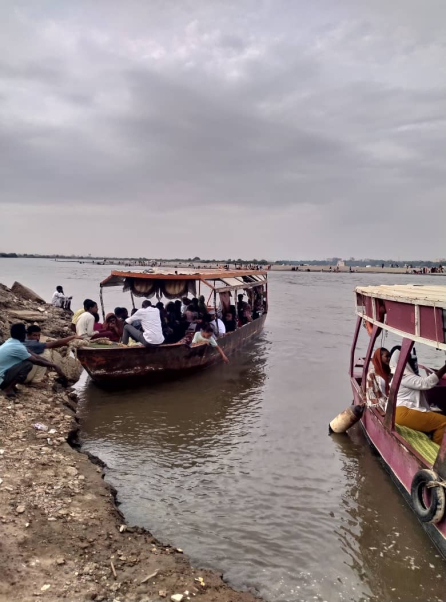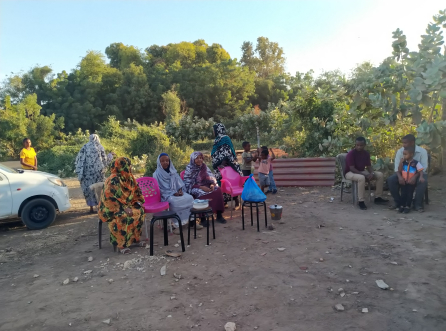About the Place
Tuti Island, located at the confluence of the Blue and White Niles in Khartoum, Sudan, is a historic oasis and one of the city’s oldest settlements. Its inhabitants, the Tuti people, trace their roots to the Mahas who settled there in the 15th century. Covering about 8 square kilometres, the crescent-shaped island, formed by silt deposition, relies on fishing and agriculture for its economy. Despite Khartoum's rapid urbanization, Tuti Island remains a tranquil refuge with lush landscapes and a rich cultural heritage.
Climate Change as a Risk Driver
Climate change has disrupted the Nile's flooding cycle, leading to severe flooding events on Tuti Island. Low rainfall and high evaporation rates have led to desertification and severe droughts, threatening agriculture and livelihoods. Rising temperatures affect the fauna in the Nile River, forcing fishermen to travel further downstream, increasing expenses, and reducing income.
Future projections suggest more intense upstream precipitation, which could further alter flooding patterns on Tuti Island, endangering residents and their traditional practices.
Indigenous Knowledge
Due to its location, Tuti has always been susceptible to floods, which are now intensifying due to climate change and developments planned in the upstream areas. In response to increasing flood events, the community developed its own flood management system called al-Taya in the mid-1940s, which included building monitoring tents around the island. This system involved building monitoring tents to observe river water and predict floods, with alerts communicated via drums.
The Taya practitioners stayed in the tents for three weeks to monitor the movement of the river water and the change in its colour to predict a potential flood event, based on which they would alert the residents using drums and barrels. These lookout points and the Taya system became a fixed mechanism for early warning during the flood season. Over time, the system adapted, replacing drums with mobile phones and relocating lookout points as needed.
Today, the Taya System involves early fundraising, community mobilization, watchpoints, early warnings, embankment construction, and flood management to protect and assist the community.
Culture-based Climate Actions Taken
The original project sought to improve the Taya system and assess climate change impacts. However, with the outbreak of conflict in Sudan in April 2023, the project shifted focus to address new community needs. The HEART project (Heritage Empowered Action for Risk in Tuti) was launched to preserve the Taya system's knowledge, which is threatened by displacement. The goal is to safeguard and pass on this heritage to bolster Tuti's resilience against both conflict and flooding.
Documentation of the Tuti community’s knowledge through community engagement in the context of the ongoing conflict
The project began by establishing contact with knowledge bearers and residents of the Tuti island—some of whom had been displaced by the conflict. Through online meetings and one-on-one coordination via WhatsApp, the team successfully brought community representatives together to exchange thoughts and foster an open dialogue.
By setting up virtual story circles, the team aimed to create a welcoming, secure and collaborative environment for the local community and Taya practitioners to share their stories, memories, and knowledge. To facilitate the conversation and gather essential information, the team posed specific questions about the community's experience with past floods, their understanding of the Taya system, as well as their perspectives and evolving needs in the current situation.
Intergenerational and inter-sectoral knowledge transfer through the Al-Taya School
The team organized the Al-Taya School, a webinar to explore the Taya System's technical aspects and functions. Though not a formal school, it aimed to preserve and share Indigenous knowledge locally and internationally. This effort provides the basis for a “Guideline on Community-led Flood Mitigation Model,” designed to empower Taya knowledge holders to train future generations and assist other communities with similar challenges.
Informing policy and practice through stakeholder meetings
An online international webinar was held to integrate the Taya system into broader flood mitigation and early warning policies. Experts in climate change, conflict resolution, and cultural heritage discussed the system's significance and impacts. The webinar highlighted the HEART initiative’s challenges and progress, fostering collaboration and exploring solutions. The goal is to establish the Taya system as a benchmark for traditional flood management in Sudan and similar contexts.


